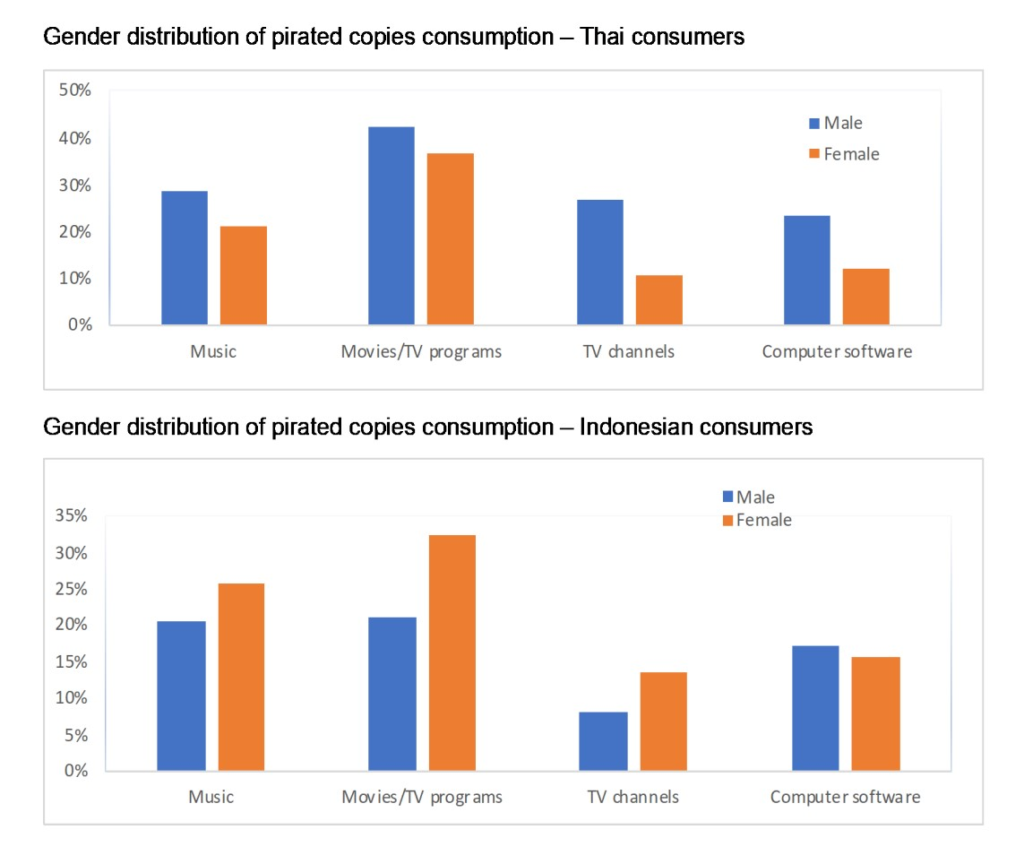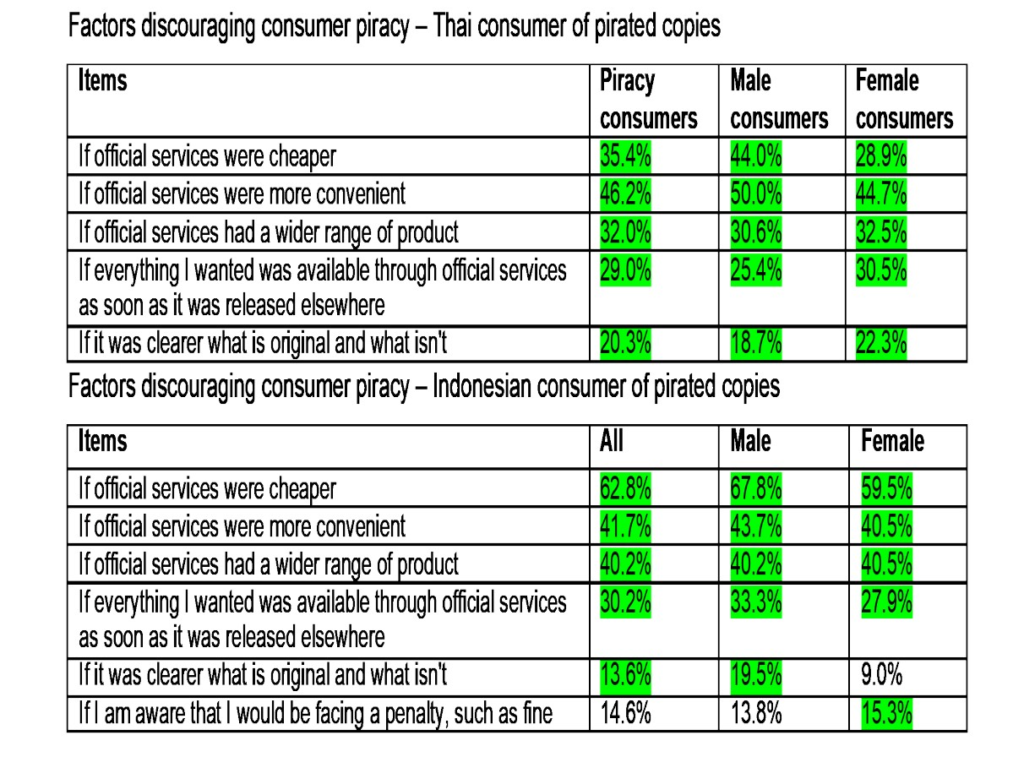The traditional image of piracy being mainly the domain of young males is outdated. Girls and women have been actively engaging in piracy for quite some time now, narrowing the gap between genders. Surprisingly, in countries like Indonesia, women are actually outpacing men in pirating music, movies, and TV shows.
It’s interesting to note that recent studies on piracy have shown a more diverse demographic, challenging the traditional image of the typical online pirate as a young male. While older data suggested a predominantly male audience, newer research indicates a more balanced representation across genders.

For instance, a study conducted by researchers from Northumbria University Newcastle examined piracy trends in Thailand and Indonesia, shedding light on consumer attitudes and behaviors regarding online copyright infringement. The findings, presented to WIPO’s Advisory Committee on Enforcement, revealed some intriguing differences between the two countries.
In Indonesia, surprisingly, women were found to be more likely to engage in piracy compared to men, across various content categories such as music, movies, and TV shows. However, when it comes to software, men were slightly ahead. In contrast, in Thailand, men were found to be the primary demographic engaging in piracy across all categories.
These findings challenge the conventional gender narrative associated with piracy and highlight the need for a more nuanced understanding of online piracy demographics.

The researchers didn’t delve into explanations for these gender differences, yet their findings underscore the disconnect between outdated gender stereotypes and contemporary realities. It begs the question: if gender holds little explanatory value in piracy contexts, is it even relevant?
Beyond gender dynamics, the study also unearthed intriguing disparities between Thai and Indonesian consumers. For instance, a higher percentage of Indonesian respondents—64%—claimed awareness of pirated movies and TV shows on YouTube compared to only 32% in Thailand.
Moreover, Indonesian consumers exhibited greater familiarity with music piracy sites and engaged in piracy more frequently than their Thai counterparts, as evidenced by the data presented. These distinctions illuminate the diverse landscape of online piracy behaviors across different regions and underscore the importance of considering cultural and contextual factors in understanding such phenomena.

The researchers also explored attitudes toward piracy, revealing nuanced perspectives across the two countries. Thai respondents indicated that improved convenience of legal services would be the most compelling reason to cease piracy, whereas Indonesian respondents cited affordability of legal alternatives as the primary deterrent.
In light of these findings, the researchers emphasize the significance of tailoring policies and anti-piracy strategies to account for both product category and consumer characteristics, as well as acknowledging national-level differences. By doing so, policymakers can better address the complex dynamics underlying online piracy and develop more effective measures to combat it.






